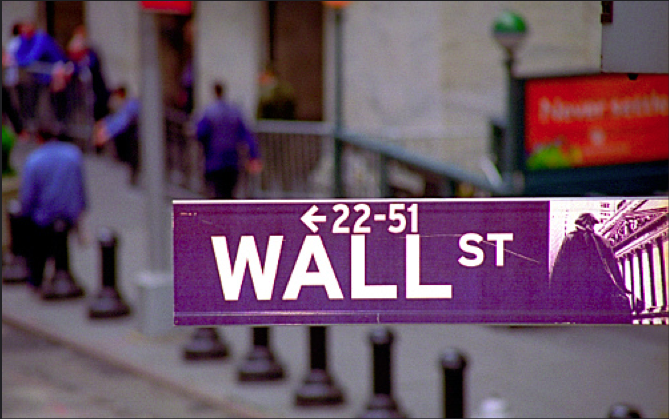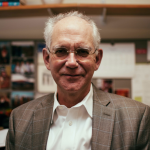 Steve Lydenberg began his career in responsible investment in 1975, as he says, before “careers in responsible investment even existed.” He joined the now-dormant Council on Economic Priorities, one of the first organizations to investigate and publicize corporate misbehavior, to support his passion for writing off-Broadway plays.
Steve Lydenberg began his career in responsible investment in 1975, as he says, before “careers in responsible investment even existed.” He joined the now-dormant Council on Economic Priorities, one of the first organizations to investigate and publicize corporate misbehavior, to support his passion for writing off-Broadway plays.
But in the 1980s, divestment from the apartheid government of South Africa popularized the view that pressure on corporations had the potential to effect social change, validating the ideas behind the nascent field of corporate social responsibility (CSR) and its offshoot, responsible investment. Lydenberg left playwriting to focus on exploring the connection between corporate finance and the social costs and benefits of doing business. Over the next three decades, Lydenberg worked with Trillium Asset Management, KLD Research and Analytics, and as a partner at Domini Social Investments. His publications on responsible investment have helped pioneer the field of impact investing.
Lydenberg is the Founding Director of the Initiative for Responsible Investment at Harvard University. In this interview conducted on May 11 2014, we talk with him about the importance of financial sector reform and robust corporate responsibility.
Jonathan Welle and Julie Kim: You have said that regulatory changes need to be accompanied by a shift in Wall Street’s culture. Why is it important to change the culture of Wall Street? What does today’s culture of Wall Street get wrong?
Steve Lydenberg: The 1970s and 1980s signaled to actors in the marketplaces that it was sufficient to rely solely on self-interest to align behavior with the public interest. When Gordon Gekko declared in the 1987 movie Wall Street “Greed is good!”, one and all understood this to mean that greed was the only motivation necessary for not only one’s own good but for the good of society as well.
As appealing and comforting as such a simple world may be, it is not the world in which we live. It would be a happy world indeed if all one had to do is calculate the most efficient means for enriching oneself — the shortest, quickest way to wealth — in order to benefit society as a whole. However, all the mathematical models of the economy, the quantitative investment techniques, and the clever uses of arbitrage or leverage will not and cannot make this so.
For better or for worse, the worlds of business and finance are no more separate from the burdens of difficult social, environmental, ethical and political considerations than any other aspects of our daily lives. As development economist Albert Hirschman suggested, to balance self-interest and to remain “morally alive” and “vulnerable to moral concerns” is to remain whole.
JW & JK: Your work with responsible investing and corporate social responsibility began decades before the recent financial crisis. Why was corporate and financial sector reform important in the 1980s, and why is it important now?
SL: I began my work in this area when few companies engaged in corporate social responsibility or sustainability efforts beyond traditional philanthropy. Much progress has been made since that time in persuading corporations to acknowledge their social and environmental impacts — as witnessed by the ever increasing number of sustainability reports voluntarily issued by corporations these days. The financial services sector has increasingly created niche-market products for those interested in microfinance, impact investing, or sustainability.
However, fundamental change in both corporate management and the financial services industry remains elusive. Without such change, it is difficult to see how the globalized economy will be able to manage the increasingly complex challenges that a world of nine billion will inevitably face.
JW & JK: Over 1,000 investors representing some $35 trillion in assets have signed the UN Principles for Responsible Investment, committing to integrate social, environmental, and governance (ESG) principles into their investment policies. Does the adoption of the Principles for Responsible Investment signal a change in the field of responsible investment? What limitations do you see with the Principles?
SL: Responsible investment is at an inflection point. Many old-fashioned investment principles – prudence and care, avoiding risks, preserving assets, and safeguarding the financial industry’s reputation for integrity – are working their way back into the dialogue about what investment should be. The Principles for Responsible Investment are a step in that direction.
I believe that, in the near future, substantial numbers of large institutional investors will be convinced that sustainability factors can be incorporated into stock valuation and that their daily investment decisions will start to reflect these price-relevant, sustainability concerns. This development will undoubtedly help direct corporate management to consider ESG issues more seriously, but it will not necessarily take the short-termism out of today’s markets. And it will not necessarily shift investors’ perspective beyond portfolio returns to include long-term factors of systems-level stability and enrichment that are difficult to translate into the daily buy/sell decisions of portfolio management.
I worry that in a world where ESG-related investment decisions are tied to only stock price, issues such as climate change or human rights will all too easily be pushed aside as not material today.
Similarly, positive ESG factors — for example, the newest fad in environmental engineering or financial products for the bottom of the pyramid —could easily create booms and busts in assets not unlike those experienced in today’s short-term markets.
JW & JK: It sounds like you’re saying that stock price, even for companies that include expanded ESG reporting as the Principles suggest, fails to account for all the externalities an investment creates. If internalizing externalities is the goal of responsible investment, then what’s the next step?
SL: For fundamental change to take place, investors and corporate managers need to adopt a truly long-term perspective, one I define as the evaluation of factors that cannot be easily translated into market prices or returns, but nevertheless have material systems-level implications. These include insights into such things as the quality of corporate management, companies’ potential for resilience in the face of an uncertain future, and their contributions to stability and preservation, as well as to innovation and disruption.
This is not an impossible task. It will require a limited number of changes in regulation and, more important, a shift in the culture of financial communities. In short, we will be living in an interconnected world so complex that a system of governance driven by cooperation, not competition, will be necessary to address the challenges we face.
JW & JK: What regulatory changes would you like to see?
SL:
- The global mandating of disclosure of corporations’ social, environmental, and governance data.
- A clarification that fiduciary duty does not consist simply in the blind maximization of profits or returns, but rather in an understanding of the best long-term interests of the corporation and of the present and future beneficiaries as whole individuals.
- Finally, the current practice measuring corporate and investment success solely in terms of stock price appreciation and portfolio returns needs to be supplemented with a set of systems-level measurements of success in terms of the environmental, social, and financial systems within which we operate.



Photo source.
